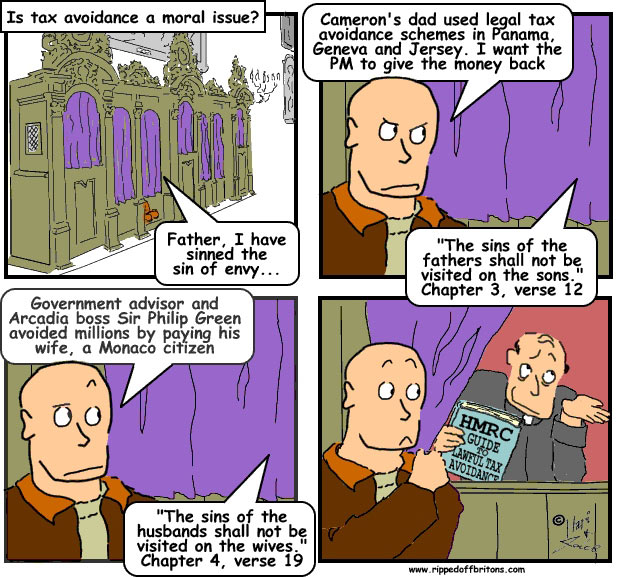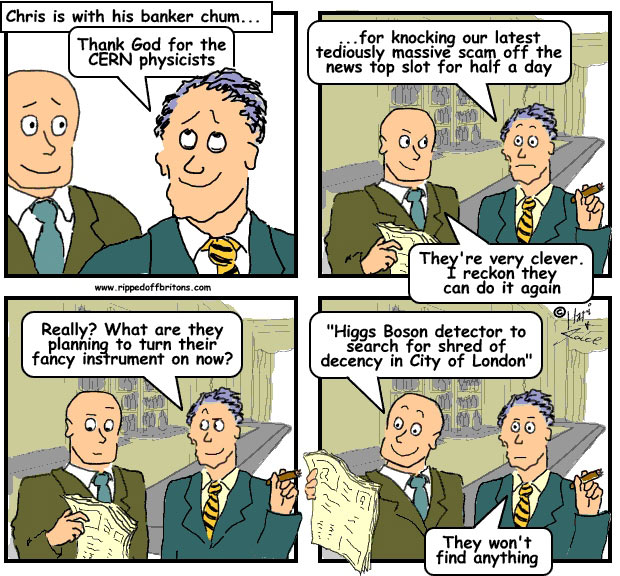UPDATE NOV 2016: Royal Bank of Scotland agreed to set aside £400m to compensate up to 12,000 small business customers that it “allegedly
mistreated” in the wake of the financial crisis. Leaked RBS documents confirm
that their "Project Dash for Cash" incentivised staff to search for
companies that could be restructured and have their assets sold off, or have
their interest rates bumped up. The documents also show that where business
customers had not defaulted on their loans, bank staff could find a way to
"provoke a default". In 2014 RBS said the department responsible, the
Global Restructuring Group, was not there to make a profit. Weeks later, as the
scandal was exposed, the then RBS chairman Sir Philip Hampton was forced to
admit that it was.
 The author of this guest post is a member of Bully-Banks, an alliance of small and medium businesses that were victims of the Interest Rate Swaps scandal that has ruined many UK businesses.
The author of this guest post is a member of Bully-Banks, an alliance of small and medium businesses that were victims of the Interest Rate Swaps scandal that has ruined many UK businesses.
The FSA for the first time recognised that the banks had been
ripping off small businesses and we, like everyone other than the banks,
celebrated. Somehow an injustice was recognised and was going to be put right, so we thought.
The FSA’s announcement stated:
"Our review has found serious failings in the sale of
interest rate hedging products to small and medium sized businesses (SMEs). We
have evidence which raises concerns about the sales we have reviewed in certain
banks. These concerns include
(i)
inappropriate sales of more complex varieties of interest rate
hedging products (such as structured collars) and
(ii)
a number of poor sales practices used in selling other interest
rate hedging products.
(iii)
We also found that sales rewards and incentive schemes could have
exacerbated the risk of poor sales practice."
It went on to say:
"In order to provide a swift solution for customers,
we have reached agreement with Barclays Bank Plc (“Barclays”), HSBC Bank Plc
(“HSBC”), Lloyds Banking Group (“Lloyds”) and The Royal Bank of Scotland Plc and National Westminster Bank Plc
(collectively “RBS”) banks to provide appropriate redress where mis-selling has
occurred. We have agreed with Barclays, HSBC, Lloyds and RBS that they
will:
(i)
provide fair and reasonable redress to non-sophisticated customers
who were sold structured collars;
(ii)
review sales of other interest rate hedging products (except caps
or structured collars) for non-sophisticated customers; and
(iii)
(iii) review the sale of
caps if a complaint is made by a non-sophisticated customer during the review.
The exercise for each bank will
be scrutinised by an independent reviewer and overseen by the FSA."
The banks however are not that stupid. We now face a reality that
we won the war, but are in danger of losing the peace. Worrying words in the
FSA judgement are:
a)
It only covers “non-sophisticated customers”. The FSA defines
as financially "sophisticated" a customer who met at least two of the following:
(i) a turnover of more than £6.5 million; or
(ii) a balance sheet total of more than £3.26 million; or
(iii)
more than 50 employees.
b)
“independent reviewer” – The proposed use of major firms of
accountants to act as ‘independent’ adjudicators is fundamentally flawed. Each
of them has significant commercial relationships with the banks and have
previously been used by the banks to close down or put into administration businesses damaged by the mis-selling of
IRSAs.
Do you know of any other situation where someone is robbed and
then the system which is supposed to look after you appoints the criminals to
resolve your dispute?





























































